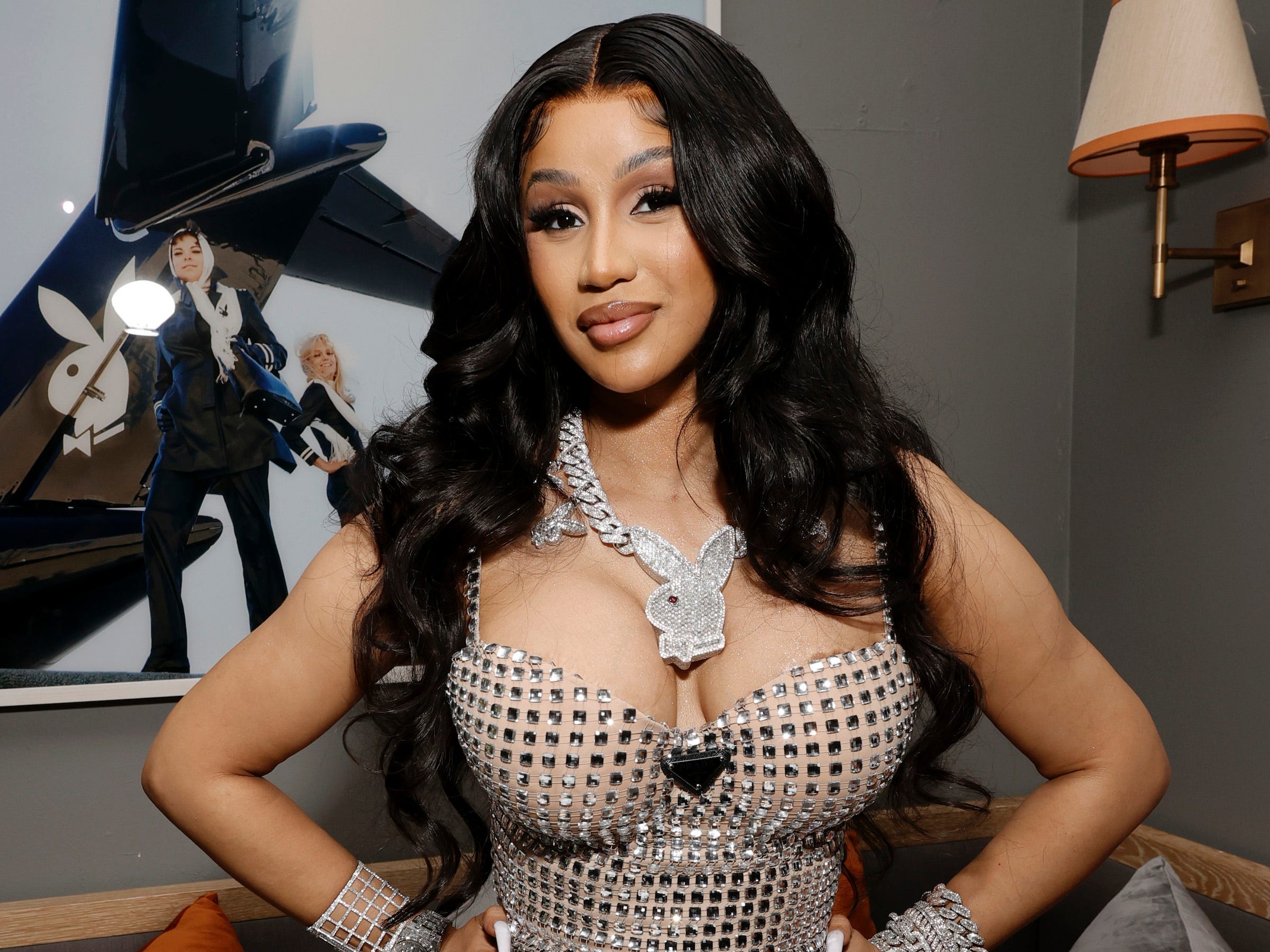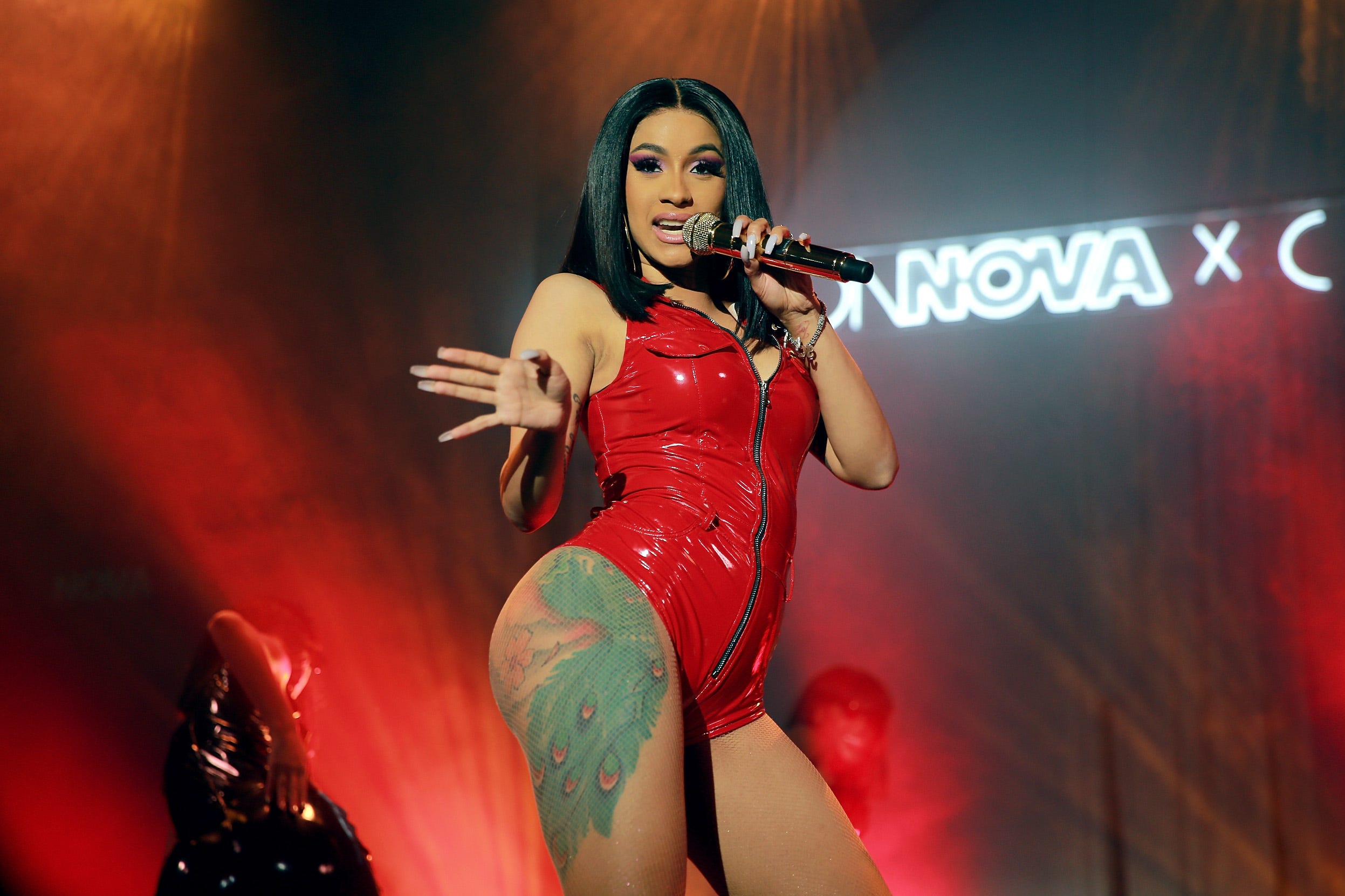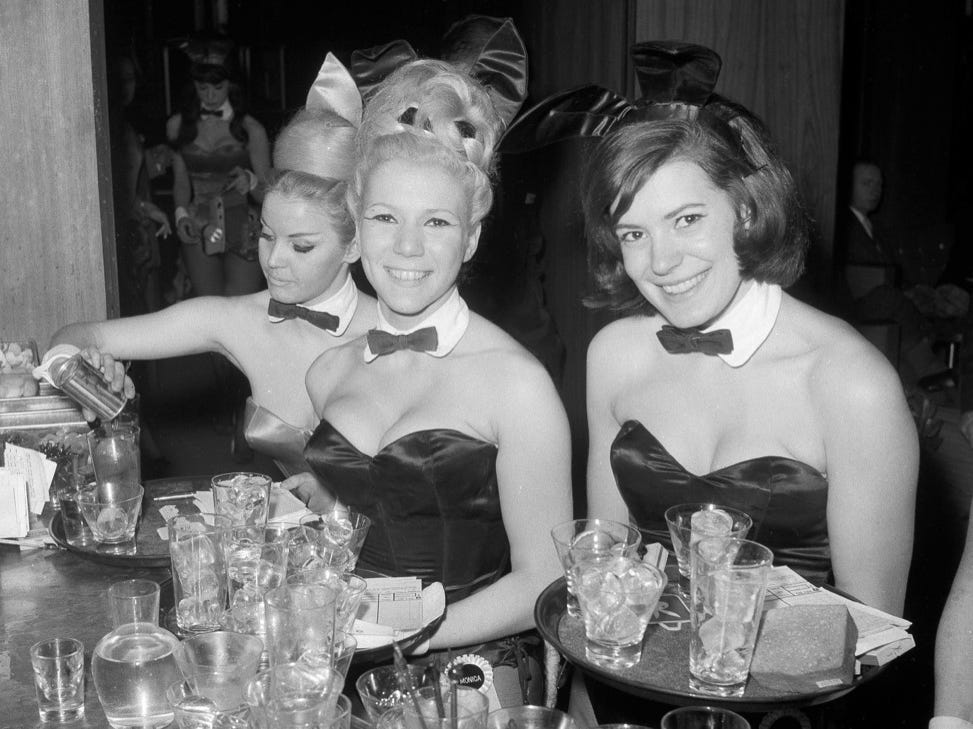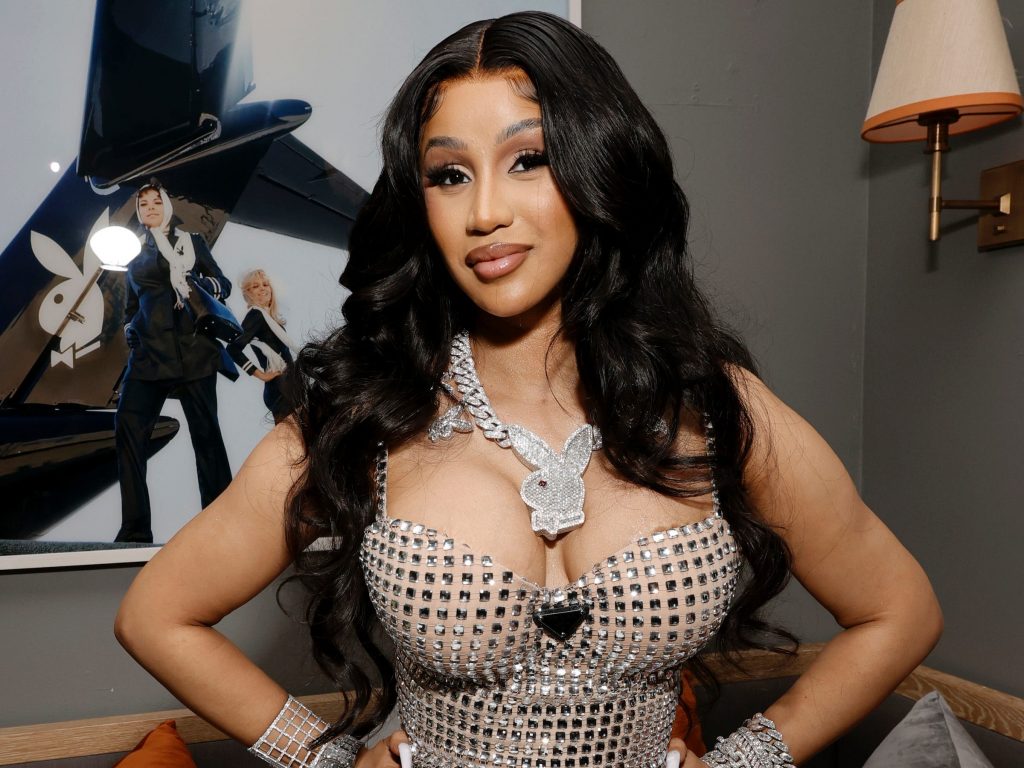
- Playboy recently announced Cardi B as its inaugural creative director in residence.
- Insider asked top media and feminist scholars what this means for the magazine.
- The Afro-Latina icon could bring much needed diversity to the company and flip dated, sexist scripts.
Cardi B is in the driver's seat of global pop culture, and Playboy wants a ride.
The men's magazine recently announced Cardi B, born Belcalis Marlenis Almánzar, as its inaugural creative director in residence, positioning the Afro-Latina across the table from the brand's mostly-white executive team. Could this be an attempt at a flailing media brand to regain cultural relevance? Or could it be something bigger — a moment to diversify pop culture and adult entertainment?
It's both, according to several noted sociologists and scholars of feminism, culture, and race.
"She foregrounds women's pleasure. She brings forth things we're afraid of as a society," Nicole Horsley, Ithaca College assistant professor of culture, race, and ethnicity, told Insider. "She represents sex, women of color, and topics Playboy is missing."
Creating a pop culture moment

The meeting of minds between Cardi B and Playboy's execs could bring more representation to the brand with a diversity of body types, genders, and ethnicities, according to Horsley. It could also be an opportunity for Cardi B and other Afro-Latina women, Black women, and women of color to reclaim stereotypes and use their hypersexualization by society to their monetary and social benefit, she said.
"She has the potential to shift what we are going to see from the digital content from Playboy moving forward," according to Kaila Adia Story, associate professor and Audre Lorde endowed chair at University of Louisville. "I do expect to see more diversity in terms of the models, the motifs they use, the colors they incorporate."
In the role, Cardi will develop fashions and sexual wellness products. She will also be a founding member of Playboy's creator-led platform called Centerfold, per Rachel Webber, Playboy's chief brand officer.
"She is the true embodiment of Playboy's values today and it's an honor to have her on our team," Webber told Insider in a statement. "She wants to use the power of her platform to shine a light on others and give them representation."
To be fair, some experts noted that the partnership could be seen as a performative gesture by Playboy. Other experts said the move could also further the consumption and devaluing of Black and brown female bodies for white male pleasure.
"The only way that her hiring is going to affect diversity and inclusion at the magazine and with the content is if she's actually given decision-making power," Story told Insider. " I hope that Playboy isn't using Cardi B as a prop to say, 'Look how committed we are to diversity and inclusion.'"
Teaching an old bunny new tricks

At its height, in the 1970s, Playboy thrived at the center of American pop culture. It defined desirability with its blonde, blue-eyed models outfitted in black leotards and their signature bunny ears. Hugh Hefner, Playboy's founder who died in 2017, represented the pinnacle of masculinity and power. The magazine pushed social conversations forward, featuring works from the likes of James Baldwin and Gabriel García Márquez. Hefner also supported civil rights and women's sexual liberation. And from its very first issue, which featured photos of Marilyn Monroe without her consent, the magazine has had a complicated legacy that critics have debated.
Over time, Playboy's cultural influence became undone. The magazine struggled to keep up with the changing nature of media, and adult entertainment as pleasure seekers moved from print to VHS to DVD, and eventually, the internet. Then the pandemic commenced, causing the publication to shutter its print production.
But Cardi B's new appointment could breathe life back into the brand. A self-proclaimed, "Bronx bitch with some pop hits," Cardi, 29, represents the antithesis of a Playboy bunny. She's flashy, raunchy, explicit, and boisterous. Cardi challenges our notions of appropriateness and femininity — and for that reason, experts said it's a cunning move on Playboy's part.
"Traditionally Playboy has mainly featured blonde-haired, blue-eyed models and kept that kind of idea of femininity and beauty intact," Horsley said. "Hopefully Cardi B opens the door to a new audience and a new way of thinking."
Webber, the Playboy exec, told Insider that is the plan. "This is a brand that believes all people have the right to pursue pleasure and advocates for freedom for all: man, woman, nonbinary, no matter how you identify. Our audience understands and embraces that with us."
The partnership is an opportunity for the magazine to make a name for itself in the digital world and expand its audience beyond print-publication-reading white, heterosexual, cisgender men from affluent backgrounds, according to Mireille Miller-Young, associate professor of feminist studies at UC Santa Barbara.
The move is "astute" and "tactical," on the part of Playboy, Miller-Young said. Of course, only time will tell. For now we'll continue watching Cardi make money — and power — moves.
